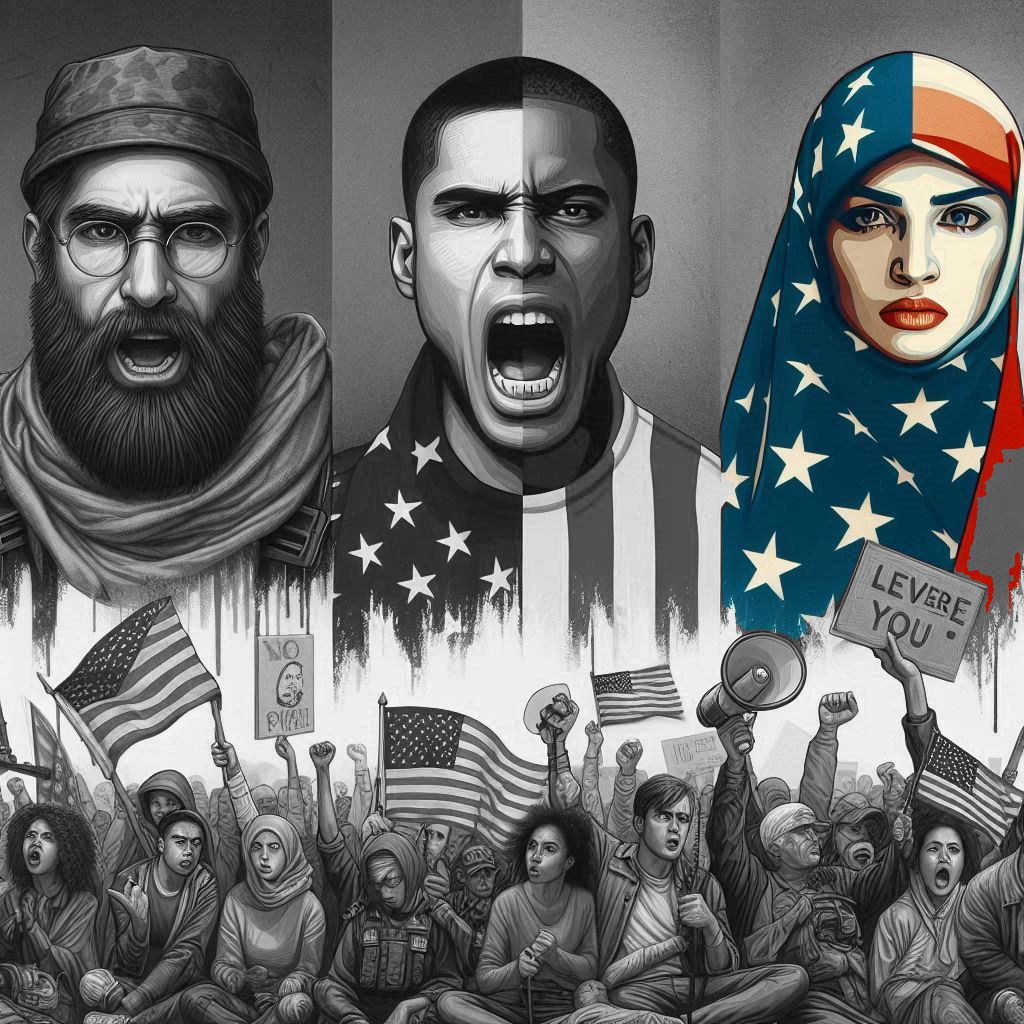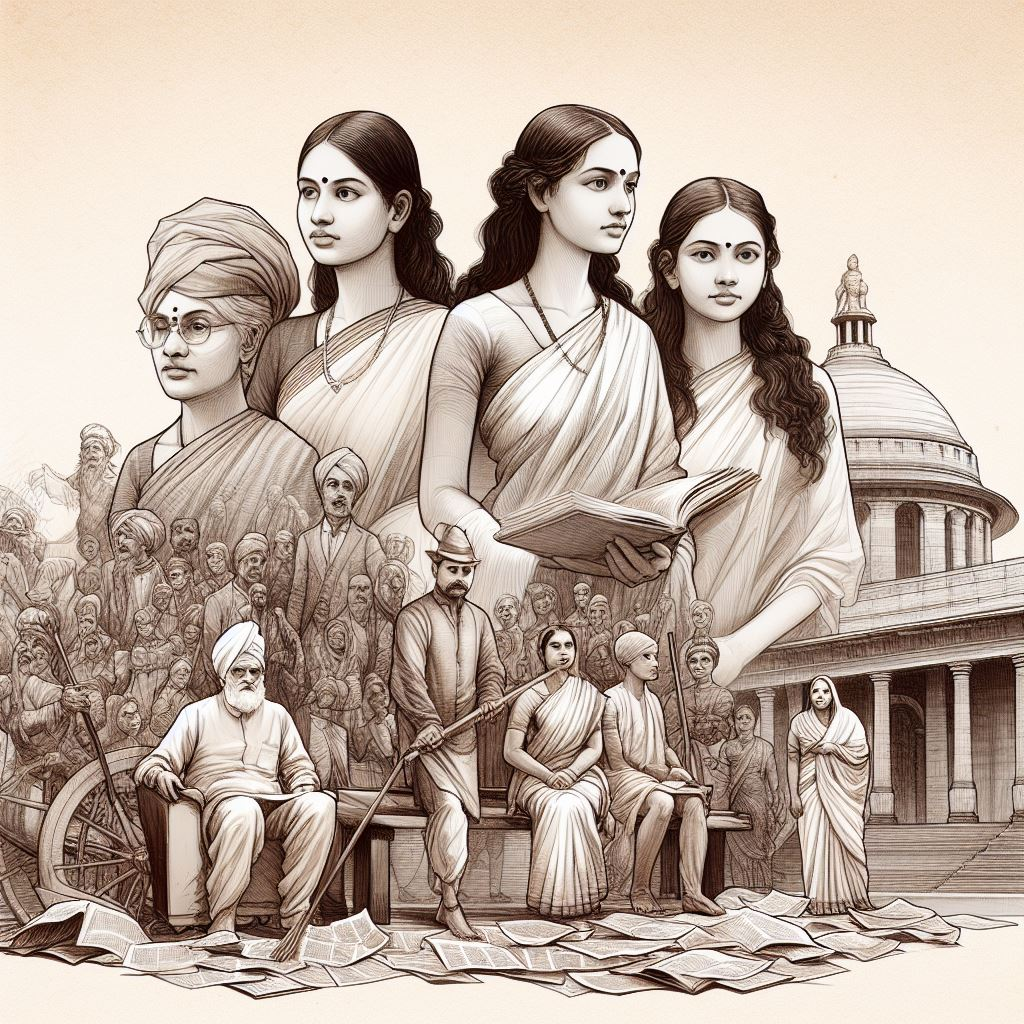Parth Raman & Diya Sehgal
The Asia-Pacific region, spanning from East Asia to Oceania, is home to diverse cultures, histories, and socio-economic contexts. Also, a significant level of political diversity characterizes Southeast Asia from the repressive military regime in Burma to the emerging democracies of Thailand and the Philippines. Within this vast expanse, human rights face both opportunities and significant challenges. The article explores the complexities of human rights in the Asia-Pacific region.

The civil societies of many states were disillusioned by the incapability of their leaders to cope with complex economic, social, and political challenges such as the 1997 Asian financial crisis. It arouses a contradiction between the states and their civil society. As evident, whenever any individual, institution or agency challenges the authority of states (especially where there is incapable leadership), the state tries to suppress the dissent, which results in human rights violation.
Challenges
- Lack of a Comprehensive Regional Mechanism:
Unlike Europe (with the European Court of Human Rights) or the Americas (with the Inter-American Commission on Human Rights), the Asia-Pacific region lacks a unified inter-governmental system specifically dedicated to human rights protection. This absence hinders coordinated efforts and accountability mechanisms.
- Resource Constraints and Geographical Diversity:
The region includes densely populated countries like China and India, as well as remote island nations. Ensuring consistent human rights standards across such diverse contexts is challenging. Limited resources, both financial and institutional, affect the implementation of human rights policies.
- Cultural Relativism and Tensions:
Cultural norms and traditions sometimes clash with universal human rights principles. Balancing cultural sensitivity with fundamental rights remains an ongoing debate. For example, issues related to freedom of expression, gender equality, and minority rights often intersect with cultural practices.
- Ongoing Challenges:
Myanmar’s escalating armed conflict has led to civilian deaths and displacement. The Rohingya crisis exemplifies the plight of ethnic minorities. Afghanistan faces repression under the Taliban, particularly affecting women and girls. China’s treatment of Uighurs and Tibetans raises concerns about religious and ethnic minority rights.
Recent Developments
- Positive Steps:
In recent years, Thailand took a significant step by criminalizing torture. This move aligns with international human rights norms and demonstrates a commitment to preventing and punishing acts of torture. The Thai government’s willingness to address this issue is commendable, although challenges remain in ensuring effective enforcement and accountability.
Malaysia made headlines when it abolished the death penalty for certain offenses. This decision reflects a growing global trend away from capital punishment. By taking this step, Malaysia acknowledges the importance of safeguarding the right to life and promoting more humane justice systems.
Timor-Leste, a young nation emerging from a tumultuous history, has prioritized human rights in its post-conflict reconstruction. The country’s efforts include truth and reconciliation processes, addressing past human rights abuses, and promoting social justice.
The Commission on Human Rights in the Philippines actively investigates human rights violations and raises awareness. Despite challenges, including threats to its independence, the commission plays a crucial role in holding perpetrators accountable and advocating for victims.
Beyond government actions, local initiatives and grassroots movements contribute to positive change. Civil society organizations, activists, and community leaders work tirelessly to raise awareness, advocate for marginalized groups, and push for policy reforms.
- Restrictions on Freedoms:
Governments across the region have increasingly restricted freedom of expression. Journalists, bloggers, and social media users face censorship, surveillance, and legal repercussions. China’s Great Firewall, for instance, blocks access to foreign websites and social media platforms, limiting citizens’ ability to express dissenting views.
Activists, human rights defenders, and dissenters often face harassment, imprisonment, or worse. Their work to promote accountability, transparency, and justice is met with hostility. In countries like Vietnam, Cambodia, and Laos, activists advocating for land rights, environmental protection, or political reforms risk their safety. Journalists reporting on sensitive issues, corruption, or human rights abuses are vulnerable. Attacks on media personnel occur, and some have paid the ultimate price. The Philippines, Bangladesh, and Pakistan have witnessed targeted killings of journalists, creating a chilling effect on investigative reporting.
Peaceful protests, rallies, and gatherings are often met with force. Authorities disperse crowds, detain organizers, and suppress dissent. Hong Kong’s pro-democracy movement faced crackdowns, and Indonesia’s Papua region has seen restrictions on assembly by Indigenous groups.
Surveillance technologies are pervasive. Governments monitor online activities, track dissidents, and suppress dissent. Privacy rights are compromised, and citizens fear expressing opinions freely online.
Regional Efforts
While a comprehensive regional mechanism is lacking, sub-regional efforts exist. The Asia Pacific Forum (APF), a network of national human rights institutions, promotes dialogue, capacity-building, and cooperation. It facilitates knowlege exchange and advocacy, bridging gaps left by the absence of a regional court or commission.
Human rights in the Asia-Pacific region remain a complex terrain. Advocacy, education, and collaboration are essential to address challenges and promote a rights-based approach. As societies evolve, the pursuit of justice and dignity must remain at the forefront of regional discourse.
The views and opinions expressed by the authors in this article are their personal opinions and do not represent the views of PureSociology. You can contact the author/s at [email protected] and [email protected]. The details of the authors are:
Parth Raman is a Practising Advocate and Founding Member of Sankhya Kul – A Modern Day Gurukul.
Diya Sehgal is a First-Year Law Student at the University Institute of Legal Studies, Chandigarh University. Along with that, she is an active Member of NITI, UILS, Chandigarh University.


